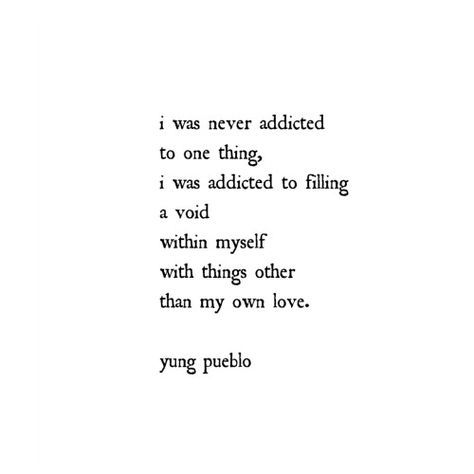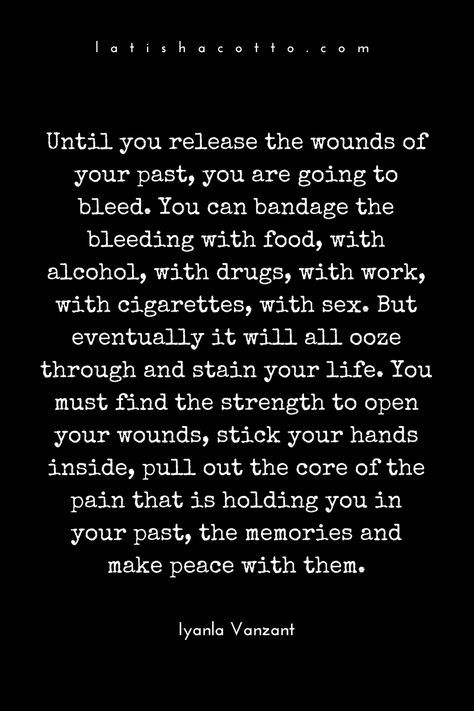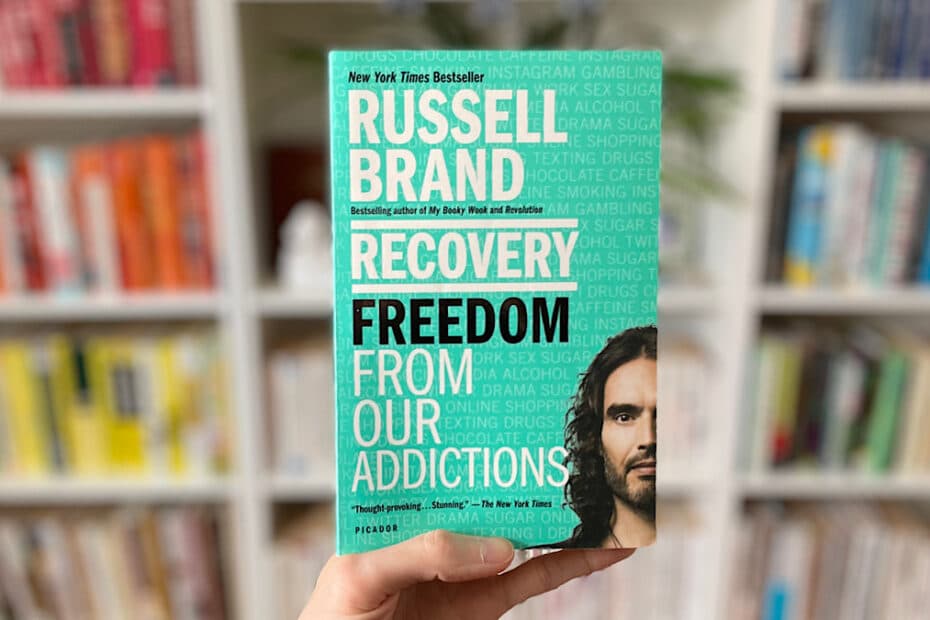“Work is good, but it should not become an addiction. Many people have turned their work into a drug so that they can forget themselves in it—just like a drunkard forgetting himself in alcohol. One should be as capable of nondoing as of doing—then one is free. One should be capable of sitting, not doing anything, as perfectly and beautifully and blissfully as when one is working hard and doing many things; then one is flexible.
Osho, Everyday Osho (Page 235)
24 Russell Brand Quotes from Recovery: Freedom From Our Addictions
Excerpt: This collection of Russell Brand Quotes from Recovery isn’t just for ‘addicts’—it’s for anyone with addictive tendencies… it’s for us all.
Read More »24 Russell Brand Quotes from Recovery: Freedom From Our Addictions
“The fact is that it doesn’t matter if you are gambling to the point where it harms you, if you are drinking too much, if you are lost in your life and afraid to articulate even to yourself how unhappy you are, how fearful of the future, of death, of other people, of being poor, of not being good enough, sexy enough, thin enough, tough enough, famous enough, if you feel that you are not enough and that if you could only ‘X, Y, Z, then everything would be fine,’ I believe you are on the spectrum of addiction. By this definition: ‘Trying to solve an inner problem by outer means, in spite of negative consequences.'”
Russell Brand, Recovery (Page 221)
“‘Sought’ is from the verb to seek; I have always been looking for something. I see that now, for as long as I can recall I harboured fantasies of how some object or experience would heal me, would make me whole. Sometimes before Christmas I would be so euphoric at the prospect of the following day’s gifts that I’d vibrate until it felt like I might shape-shift. What was I imagining the millennium Falcon or whatever it was would bring? What was the inherent drive that was so fiercely engaged? I always felt these artefacts would bring completion. It was like I was born with the yearning to be whole and continually felt that each new object or encounter, particularly if enthusiastically heralded, would bring redemption.”
Russell Brand, Recovery (Page 194)
“When you start to drink, wank, eat, spend, obsess [excessively] you have lost your connection to the great power within you, the great power in others, the great power around all things. There is something in you speaking to you and you don’t understand it because you’ve never learned its language. So we try to palm it off with porn and consuming but it is your spirit calling and it craves connection. Spend time alone, write, pray, meditate. This is where we learn the language.”
Russell Brand, Recovery (Page 134)
“It is commonly understood that the opposite of addiction is connection. That in our addictive behaviours we are trying to achieve the connection. Think of it: the bliss of a hit or a drink or of sex or of gambling or eating, all legitimate drives gone awry, all a reach across the abyss, the separateness of ‘self,’ all an attempt to redress this disconnect.”
Russell Brand, Recovery (Page 86)
“I believe that the mystery of creation and the laws of the universe hold great power in them. I believe that the innate love that human beings have for one another is a power. I believe people’s willingness to suffer for a cause is a power. I believe the healing of an injury is a power. Muhammad Ali’s sacrifice for what he believed in is a power. The music of Mozart (or Moz), the Sistine Chapel ceiling, George Best—all these allude to some Power that is greater than me. The chances that I have had in life, the people that have loved me and been there for me. There are many examples of a Power greater than myself, alone, with my addiction and my thoughts.”
Russell Brand, Recovery (Page 46)
“My best efforts, my best intentions will be sucked into the quagmire if I am not vigilant. You too, you may think, ‘yes, I am an addict, I will change the way I drink or eat or think or relate to sexual partners,’ but surely the craving will find a new expression, like a magnetic field ordering iron filing. You can replace the filings but the pull stays the same. It is only by finding a more powerful magnetic pull that you can change the patterns completely. This can be the program itself, sedulously applied. It can be a support group, made up of like-minded people. It can be an orthodox or traditional idea of God. It can be nature. It can be a unified field of consciousness that supports all phenomena. It frankly doesn’t matter and it is entirely for you to choose, as long as it is loving, caring and more powerful than you.”
Russell Brand, Recovery (Page 45)
“In your life you’ve faced obstacles, inner and outer, that have prevented you from becoming the person you were ‘meant to be’ or ‘are capable of being’ and that is what we are going to recover. That’s why we call this process Recovery; we recover the ‘you’ that you were meant to be.”
Russell Brand, Recovery (Page 42)
“Beyond today your projections of life are conceptual. You don’t have to not drink for twenty years today. You don’t have to give up white bread for all eternity, right now. And if you do make it through today, and wake up tomorrow, what does it really matter that you didn’t act out yesterday? I mean, you’re not accumulating tokens for punitive pleasure. This ‘one day at a time’ cliché when taken plainly is no less profound than any ‘be in the moment’ Eastern wisdom I’ve since encountered. Today is all I have.”
Russell Brand, Recovery (Page 25)
“My authority comes not from a steep and certain mountain top of po-faced righteousness. This manual for Self-Realization comes not from the mountain but from the mud. Being human is a ‘me too’ business. We are all in the mud together. My qualification is that I am more addicted, more narcissistic, more driven by lust and the need for power and recognition.”
Russell Brand, Recovery (Page 6)
“We adapt to the misery of an unloving home, of unfulfilling work. Of empty friendships and lacquered alienation. The 12 Step program, which has saved my life, will change the life of anyone who embraces it. I have seen it work many times with people with addiction issues of every hue: drugs, sex, relationships, food, work, smoking, alcohol, technology, pornography, hoarding, gambling, everything. Because the instinct that drives the compulsion is universal. It is an attempt to solve the problem of disconnection, alienation and tepid despair, because the problem is ultimately ‘being human’ in an environment that is curiously ill-equipped to deal with the challenges that entails. We are all on the addiction scale.”
Russell Brand, Recovery (Page 4)
Recovery: Freedom From Our Addictions [Book]
Book Overview: With a rare mix of honesty, humor, and compassion, comedian and movie star Russell Brand mines his own wild story and shares the advice and wisdom he has gained through his fourteen years of recovery. Brand speaks to those suffering along the full spectrum of addiction―from drugs, alcohol, caffeine, and sugar addictions to addictions to work, stress, bad relationships, digital media, and fame. Brand understands that addiction can take many shapes and sizes and how the process of staying clean, sane, and unhooked is a daily activity. He believes that the question is not “Why are you addicted?” but “What pain is your addiction masking? Why are you running―into the wrong job, the wrong life, the wrong person’s arms?”
Buy from Amazon! Listen on Audible!
Great on Kindle. Great Experience. Great Value. The Kindle edition of this book comes highly recommended on Amazon.
Post(s) Inspired By This Book:
“Every addiction arises from an unconscious refusal to face and move through your own pain. Every addiction starts with pain and ends with pain. Whatever the substance you are addicted to—alcohol, food, legal or illegal drugs, or a person—you are using something or somebody to cover up your pain. That is why, after the initial euphoria has passed, there is so much unhappiness, so much pain in intimate relationships. They do not cause pain and unhappiness. They bring out the pain and unhappiness that is already in you. Every addiction does that. Every addiction reaches a point where it does not work for you anymore, and then you feel the pain more intensely than ever.”
Eckhart Tolle, The Power of Now (Page 152)



